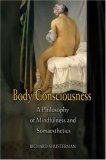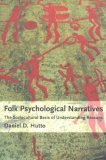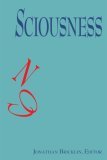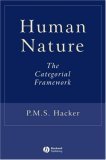January 12, 2008
Body Consciousness: A Philosophy of Mindfulness and Somaesthetics by Richard Shusterman, Cambridge University Press, 2008. (“Search Inside the Book” available from Amazon).
by Richard Shusterman, Cambridge University Press, 2008. (“Search Inside the Book” available from Amazon). 
From the book description:
Contemporary culture increasingly suffers from problems of attention, over-stimulation, and stress, and a variety of personal and social discontents generated by deceptive body images. This book argues that improved body consciousness can relieve these problems and enhance one’s knowledge, performance, and pleasure. The body is our basic medium of perception and action, but focused attention to its feelings and movements has long been criticized as a damaging distraction that also ethically corrupts through self-absorption. In Body Consciousness, Richard Shusterman refutes such charges by engaging the most influential twentieth-century somatic philosophers and incorporating insights from both Western and Asian disciplines of body-mind awareness.
*****
(My New Year’s Resolution is to post something every day, which so far has meant lots of short posts! )
Comments (1)
- consciousness,meditation,new books
January 10, 2008
Recently issued by MIT Press: Folk Psychological Narratives: The Sociocultural Basis of Understanding Reasons (Bradford Books) by Daniel C. Hutto.
by Daniel C. Hutto.

From the book description:
Established wisdom in cognitive science holds that the everyday folk psychological abilities of humans–our capacity to understand intentional actions performed for reasons–are inherited from our evolutionary forebears. In Folk Psychological Narratives, Daniel Hutto challenges this view (held in somewhat different forms by the two dominant approaches, “theory theory” and simulation theory) and argues for the sociocultural basis of this familiar ability. He makes a detailed case for the idea that the way we make sense of intentional actions essentially involves the construction of narratives about particular persons. Moreover he argues that children acquire this practical skill only by being exposed to and engaging in a distinctive kind of narrative practice.
Hutto calls this developmental proposal the narrative practice hypothesis (NPH). Its core claim is that direct encounters with stories about persons who act for reasons (that is, folk psychological narratives) supply children with both the basic structure of folk psychology and the norm-governed possibilities for wielding it in practice. In making a strong case for the as yet underexamined idea that our understanding of reasons may be socioculturally grounded, Hutto not only advances and explicates the claims of the NPH, but he also challenges certain widely held assumptions. For example, he targets the idea that the primary function of folk psychology is to enable us to predict the behaviors of others. In this way, Folk Psychological Narratives both clears conceptual space around the dominant approaches for an alternative and offers a groundbreaking proposal.
Amazon has “Search Inside the Book” for this title.
Comments (0)
- cognitive science,culture,new books,philosophy of mind,psychology
January 9, 2008
One of the books in the LibraryThing Early Reviewers program for this month is called “Sciousness .” I had never heard this term before, but it comes from William James (and of course has its own Wikipedia entry!)
.” I had never heard this term before, but it comes from William James (and of course has its own Wikipedia entry!)

James uses the term to refer to “pure experience” or “consciousness without self” (or maybe more precisely “consciousness prior to self”).
I hope I get a copy of this book to review!
Comments (0)
- consciousness,new books
January 8, 2008
Included in the new batch of Metapsychology reviews are a review of ‘The Self?,‘ a collection of papers edited by Galen Strawson (Wiley-Blackwell, 2005), and a review of ‘Human Nature: The Categorical Framework’ by P.M.S. Hacker (Wiley-Blackwell 2007).


Comments (0)
- philosophy of mind,self
by Richard Shusterman, Cambridge University Press, 2008. (“Search Inside the Book” available from Amazon).







